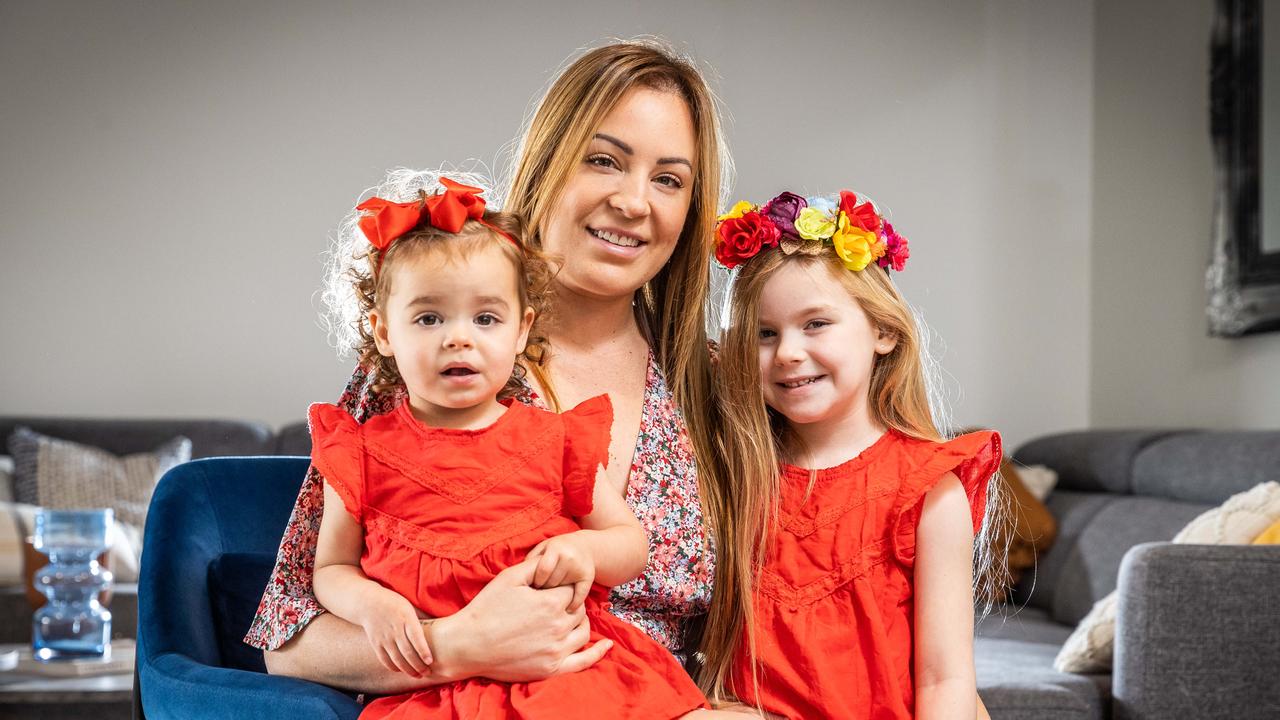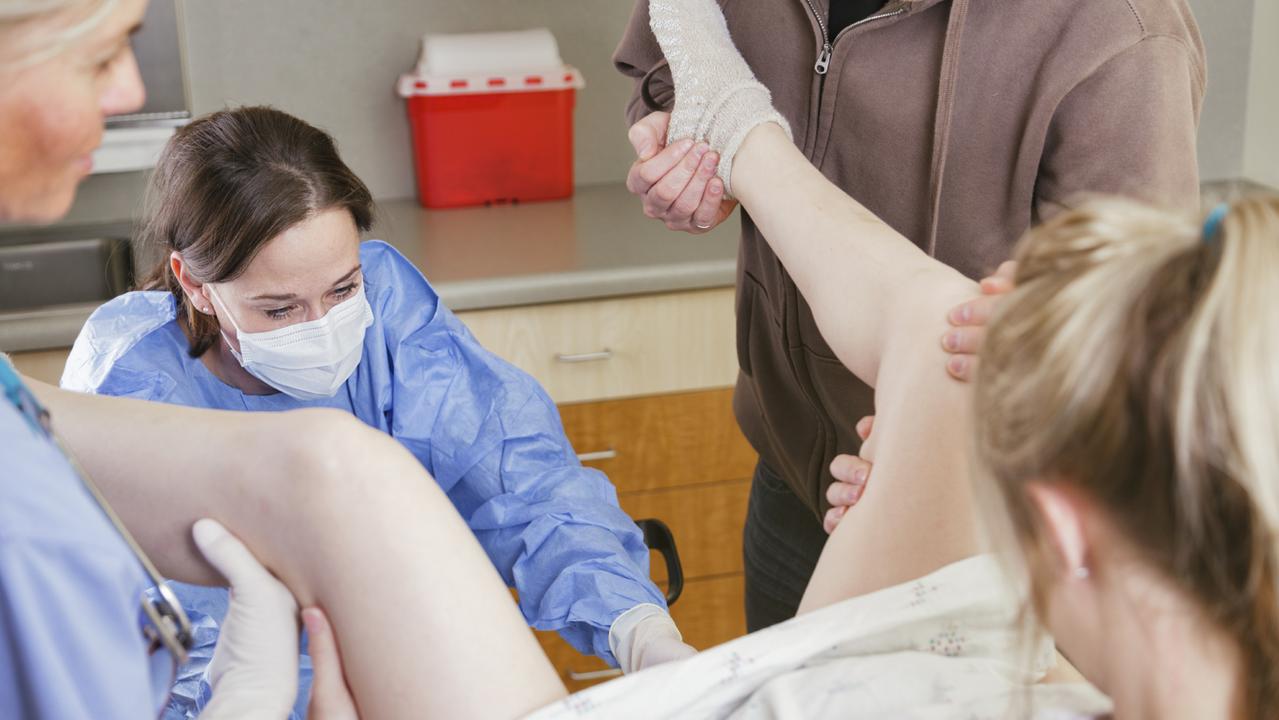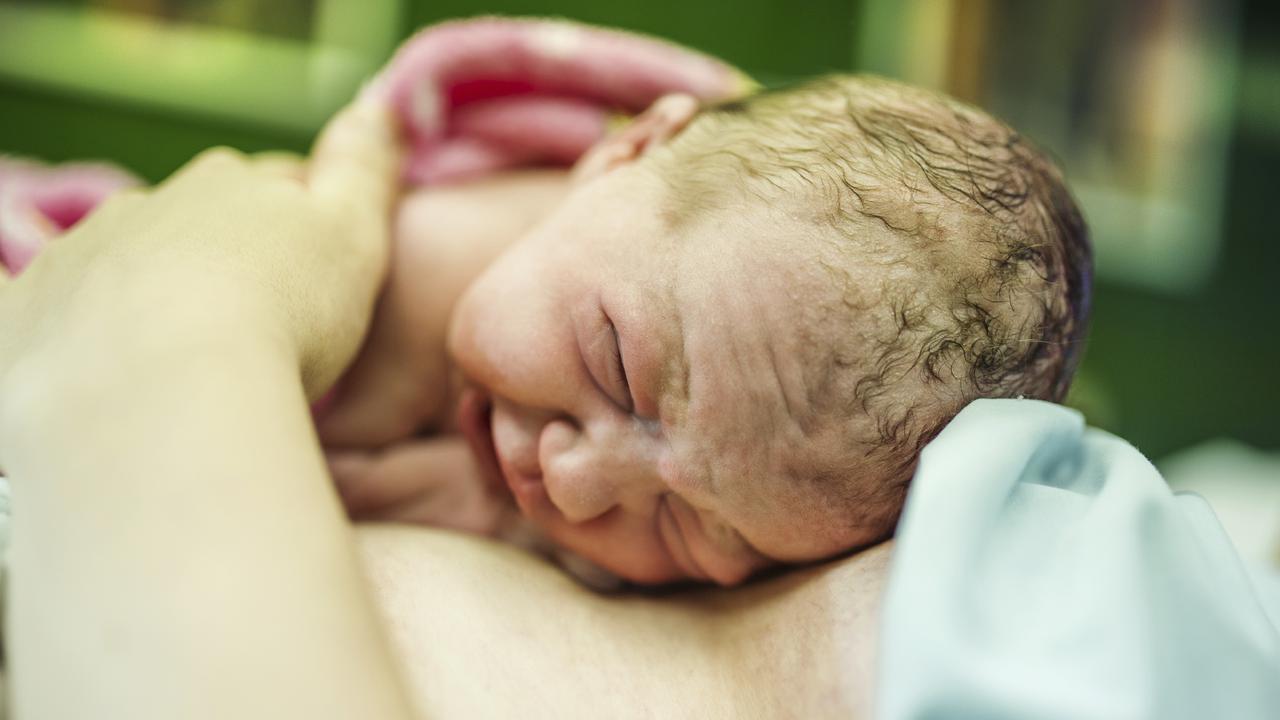Melbourne University study shows induction safest for mothers
Should hospitals offer mothers an elective induction before they hit 40 weeks? The answer – based on data from 1.6 million women – might surprise you.

Victoria
Don't miss out on the headlines from Victoria. Followed categories will be added to My News.
Early elective inductions may be the safest option for some pregnant women, after surprising new research found mums who were induced at 39 weeks were less likely to suffer severe injuries.
The Melbourne University study analysed data on more than 1.6 million women from 14 different studies.
They found an elective 39 week induction led to better health outcomes for mothers than a “watch and wait approach”, when women gave birth – via spontaneous labour, induction or caesarean – 40 weeks or later.
An induction is when clinicians intentionally ‘kickstart’ labour.
The risk of serious perineal injury – which can require surgery and take months to heal – was reduced by 37 per cent, while births involving forceps or vacuum extraction were also less likely.

Project co-lead Dr Roxanne Hastie said research had already shown early inductions – responsible for more than 40 per cent of labours in Australia and rising – were safe for babies.
“But is it better for mum? This study is the first to confirm that inducing labour seems to protect mums,” she said.
She said the injuries analysed by their study – third or fourth degree tears – cause both “physical and mental trauma” and can have “lasting effects”.
“Third or fourth degree tears (are) . . pretty significant injuries to the perineum.”
Up to one in 20 vaginal births led to severe perineal injury.
Dr Hastie said their study, published in the Journal of the American Medical Association Network Open, also confirmed a previous finding — that inductions among first-time mums lower the risk of needing an emergency caesarean.
“We also found their babies were less likely to require admission to the neonatal intensive care unit … and less likely for emergency fever,” she said.
But they also found cases of shoulder dystocia – which is when the babies’ shoulder gets stuck – increased among first-time mothers, meaning an early elective induction may not always be the best option for these women.

Dr Hastie said women previously needed a medical reason to be induced early, but this had started to change in recent years.
She said women should be allowed to make their own informed decisions with their doctor – weighing up various risks and their own situation.
“We’re just trying to provide the right evidence for women so they can make informed decisions about their health, not saying one works better or the other, but so you can have the option to make that decision yourself,” she said.
Melbourne mum Shani Martin, who had to be induced early for both Sasha, 1, and Aria, 5, said it was important women could make an “evidence-based informative decision”.
“[My doctor] went through the pros and cons of being induced,” she said.
“It was a pretty smooth labour once the induction started and there was only minimal instrumental use.
“It’s definitely important just having all the information available and having these research articles.”
Originally published as Melbourne University study shows induction safest for mothers








